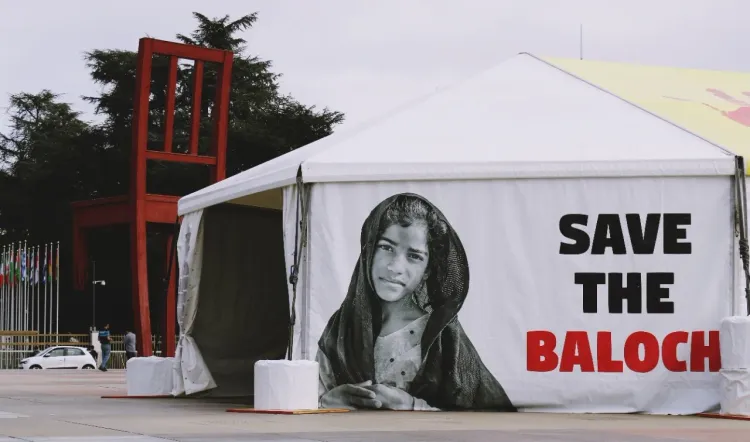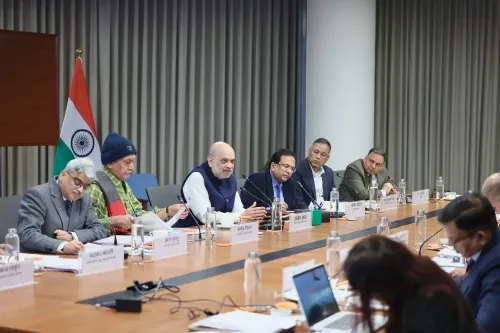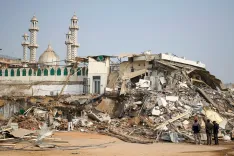Should the EU Revoke Pakistan’s GSP+ Status Over Human Rights Violations in Balochistan?

Synopsis
Key Takeaways
- 6744 individuals have experienced enforced disappearances in Balochistan.
- 2559 individuals were released after severe torture.
- 215 previously disappeared persons were found dead, many showing signs of torture.
- Military operations have led to the forced evacuation and destruction of villages.
- Call for the EU to monitor human rights conditions in Balochistan.
Quetta, Sep 25 (NationPress) A prominent human rights organization has officially presented a comprehensive report detailing human rights abuses in Balochistan to the European Union’s GSP+ Committee, urging the cancellation of Pakistan’s GSP+ beneficiary status due to significant non-compliance. The Human Rights Council of Balochistan (HRCB) documented verified incidents from January 2016 to June 2025, revealing a disturbing trend of serious human rights violations in Balochistan that amount to what the report describes as “crimes against humanity.”
The findings indicate that at least 6744 individuals have experienced enforced disappearances in front of their families, perpetrated by Pakistani security forces throughout the province. Furthermore, 2559 individuals were released after enduring severe torture in military detention facilities.
Additionally, the report states that 215 previously missing persons were later discovered deceased, many showing clear signs of torture. It also notes that Pakistani forces killed 173 individuals in staged encounters and 231 people during various military operations.
The HRCB highlighted that the Pakistani government has resorted to burying these bodies without confirming their identities. “Numerous human remains were found in mass graves, some identified as forcibly disappeared persons, while many were buried anonymously. Public institutions, including schools and community areas, have been converted into military camps, severely disrupting civilian life. Hundreds of villages have been forcibly evacuated, set ablaze, and looted during military actions, especially along the China-Pakistan Economic Corridor route, displacing tens of thousands,” the report stated.
To emphasize the escalating atrocities, the report pointed out that political and human rights assemblies are met with brutal force; Baloch activists face being shot, killed, or falsely charged, while female human rights defenders are assaulted and beaten publicly.
The HRCB asserted that Baloch students residing in Punjab, Islamabad, and Sindh undergo racial profiling, harassment, enforced disappearances, torture, and extrajudicial killings. It also claimed that Pakistani courts frequently neglect these cases and endorse the military's oppressive tactics. Furthermore, the Commission of Inquiry on Enforced Disappearances in Pakistan has proven ineffective, with no military or intelligence officials being held accountable.
The HRCB has called upon the EU to suspend or revoke Pakistan’s GSP+ status until verifiable human rights improvements are made and to establish independent EU monitoring mechanisms that engage directly with civil society and victims in Balochistan.
Moreover, it urged the EU to compel Pakistan to ratify and implement the International Convention for the Protection of All Persons from Enforced Disappearance.










